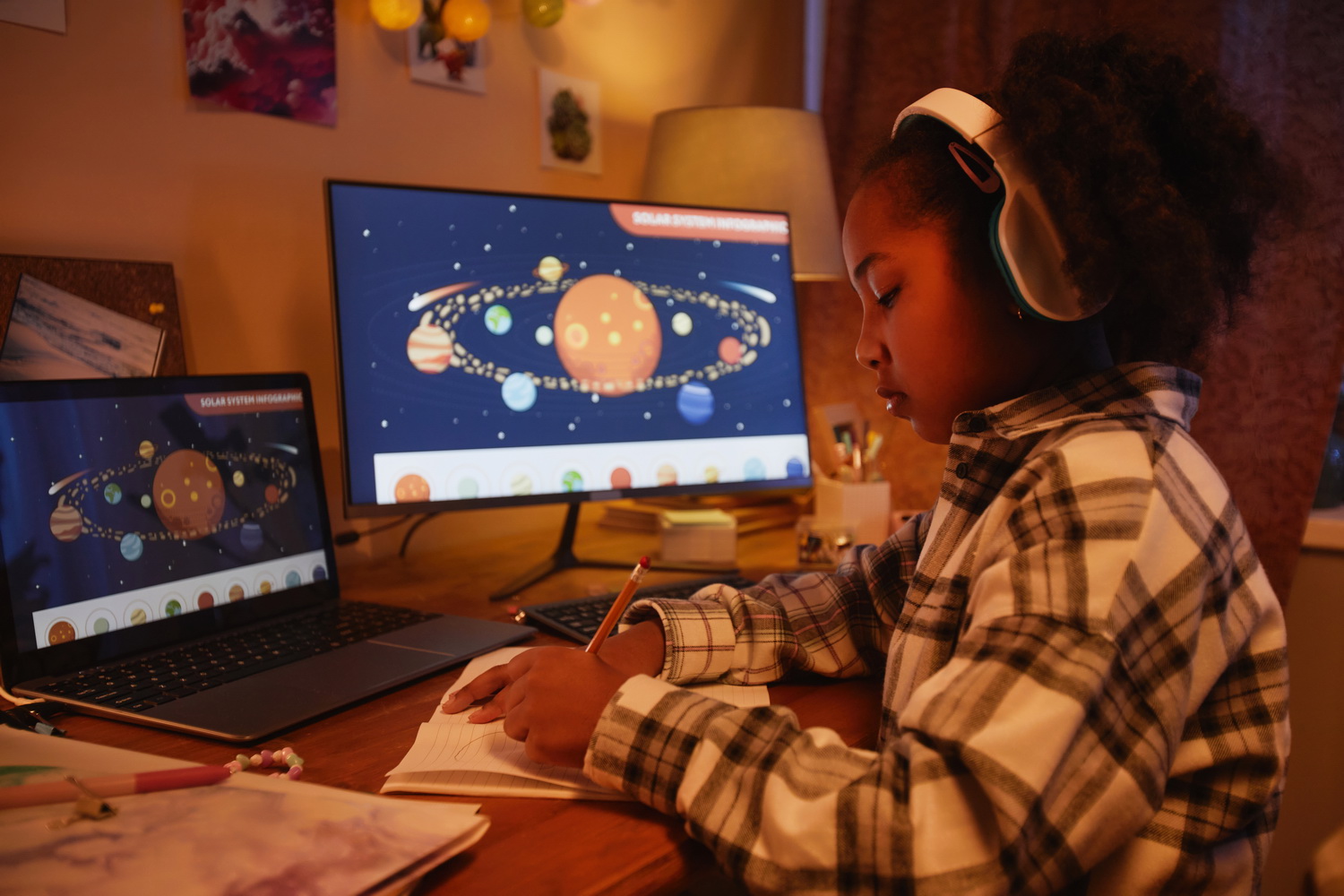Thanksgiving worksheets activities for Ages 3-7
9 filtered results
-
From - To
Explore our engaging Thanksgiving worksheets and activities designed for children ages 3-7! Foster creativity and enhance learning with our fun, themed resources. From adorable coloring pages and interactive puzzles to brain-teasers and tracing exercises, our activities aim to spark curiosity and celebrate the holiday spirit. These engaging worksheets not only entertain but also promote essential skills such as counting, letter recognition, and fine motor development. Perfect for home or classroom use, our Thanksgiving worksheets create a delightful learning experience while embracing the joy of gratitude and family traditions. Let the holiday festivities inspire your child’s educational journey!
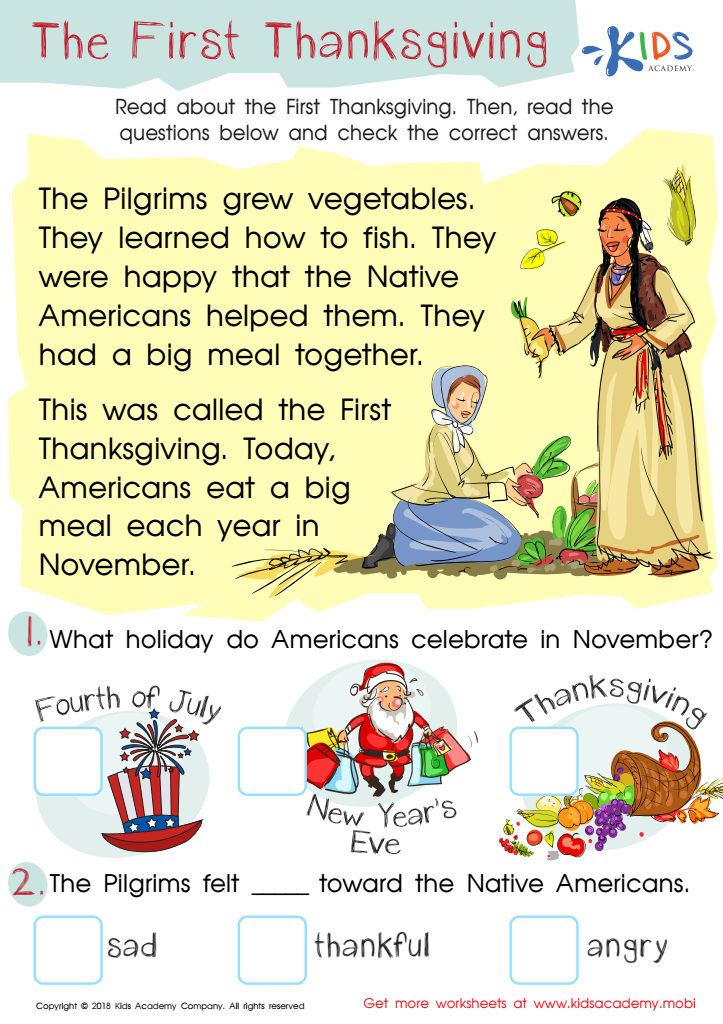

Assessment: First Thanksgiving Worksheet
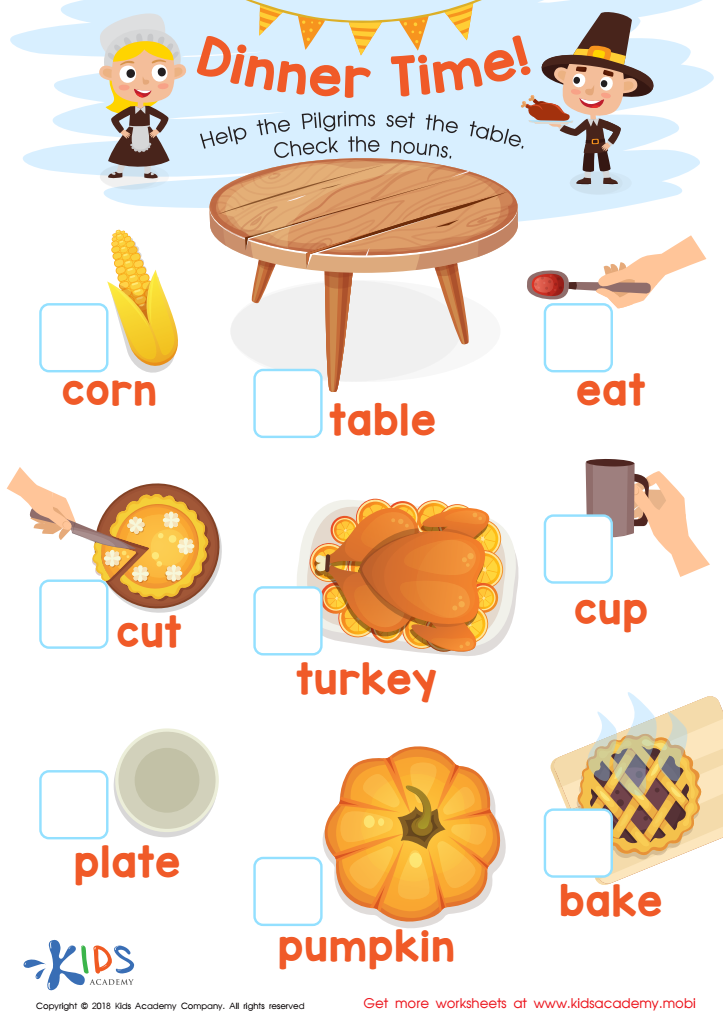

Dinner Time! Worksheet
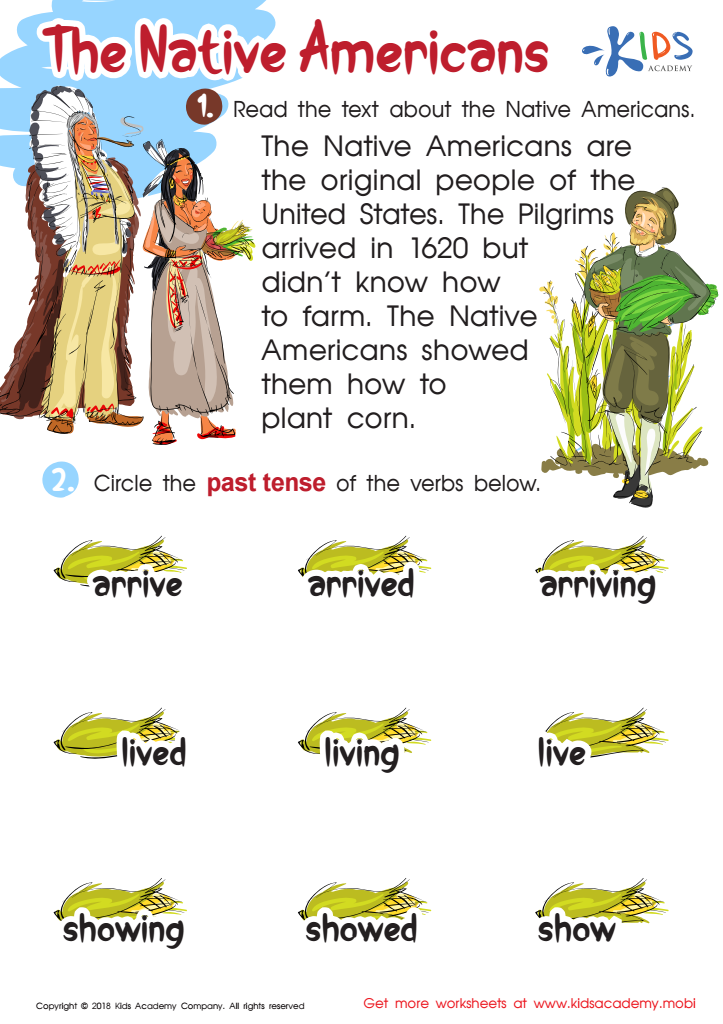

The Native Americans Worksheet
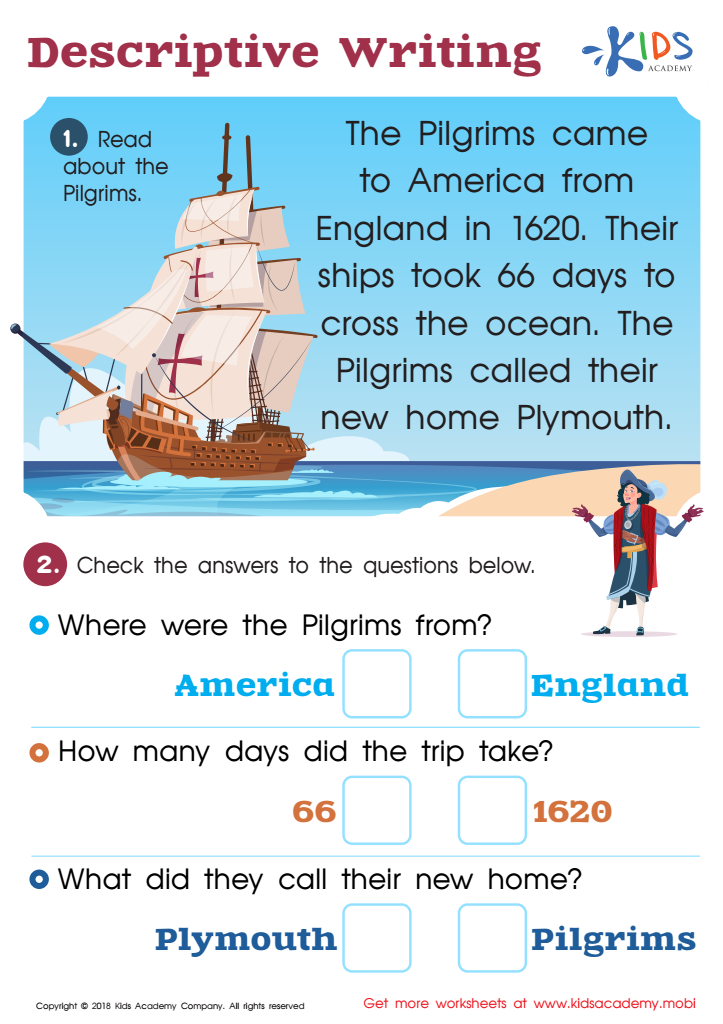

Descriptive Writing Worksheet: Part 1
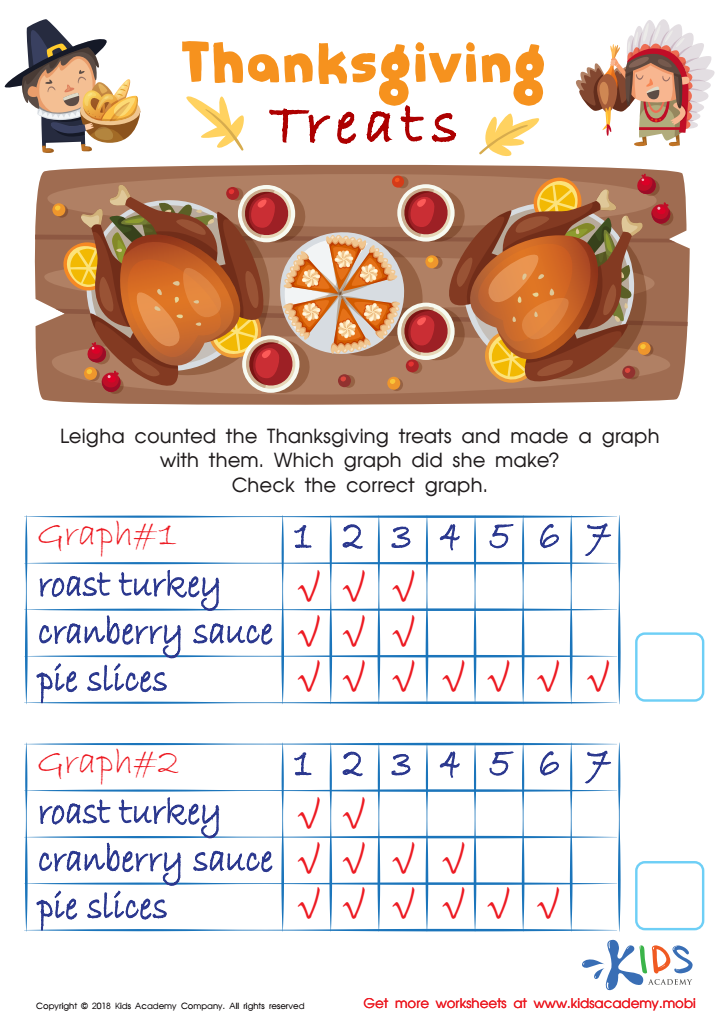

Graphs: Thanksgiving Treats Worksheet
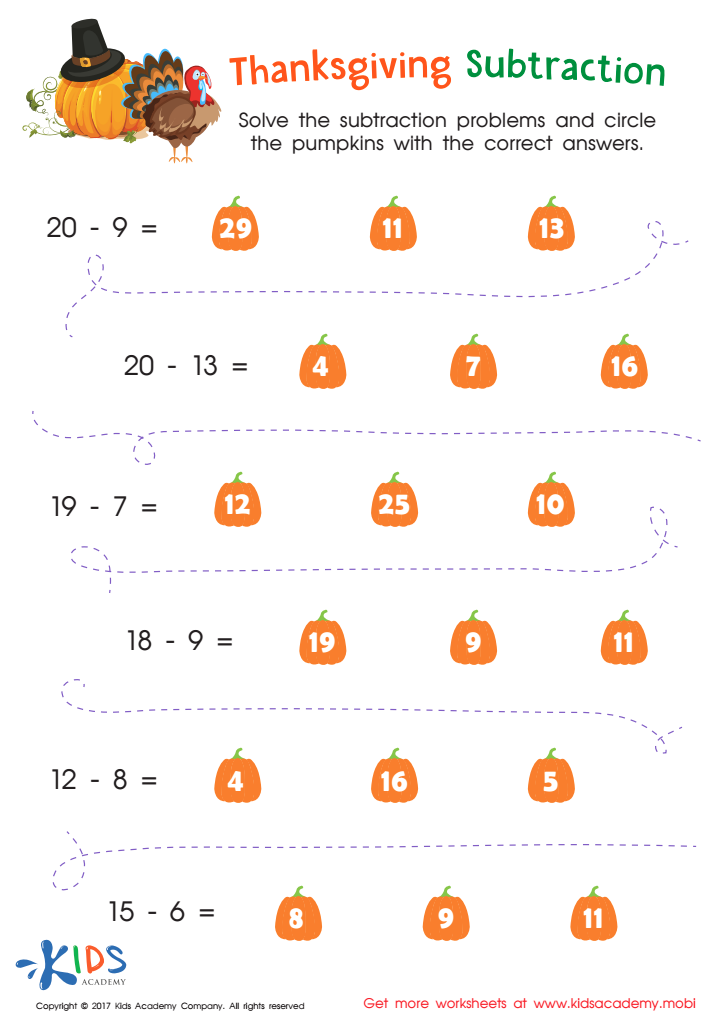

Thanksgiving Subtraction Substraction Worksheet
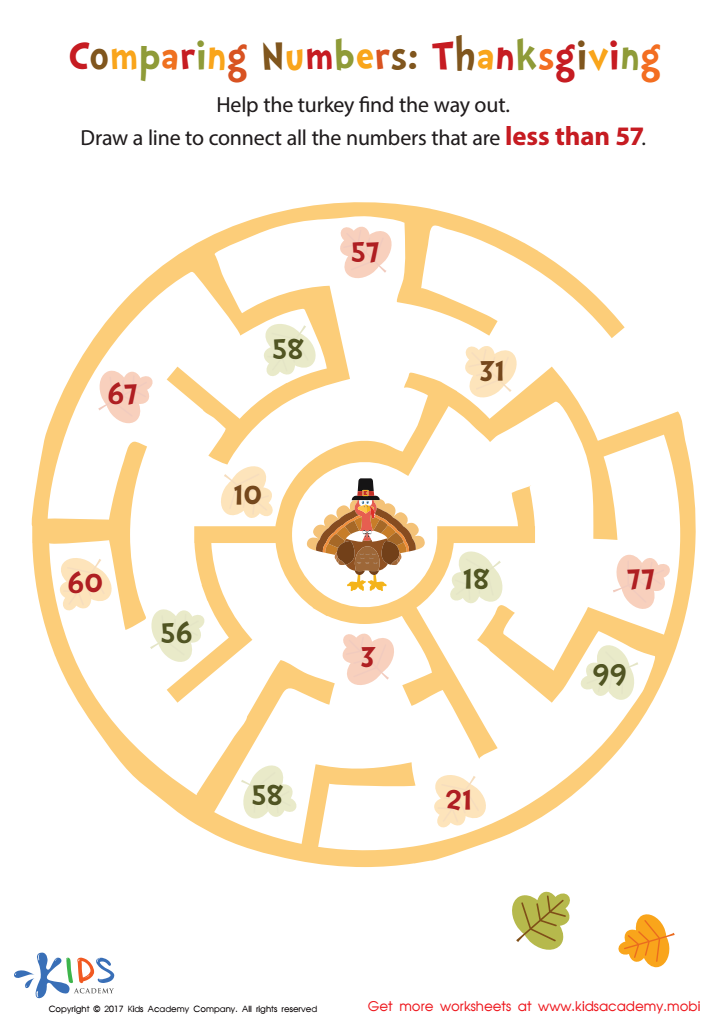

Comparing Numbers Printable
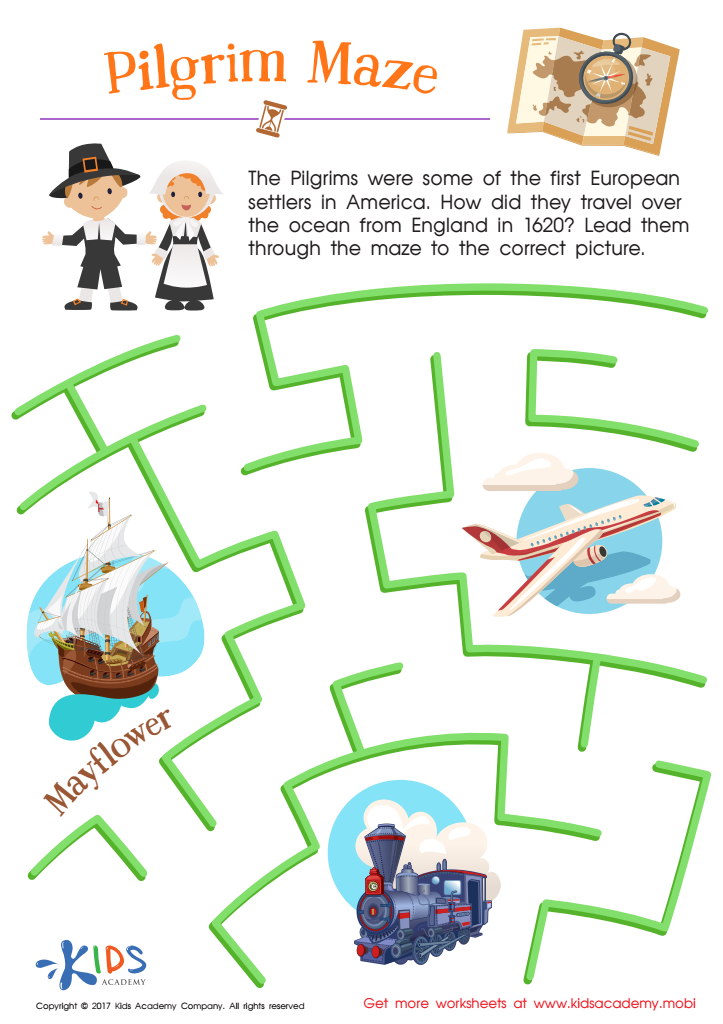

Pilgrim Maze Worksheet
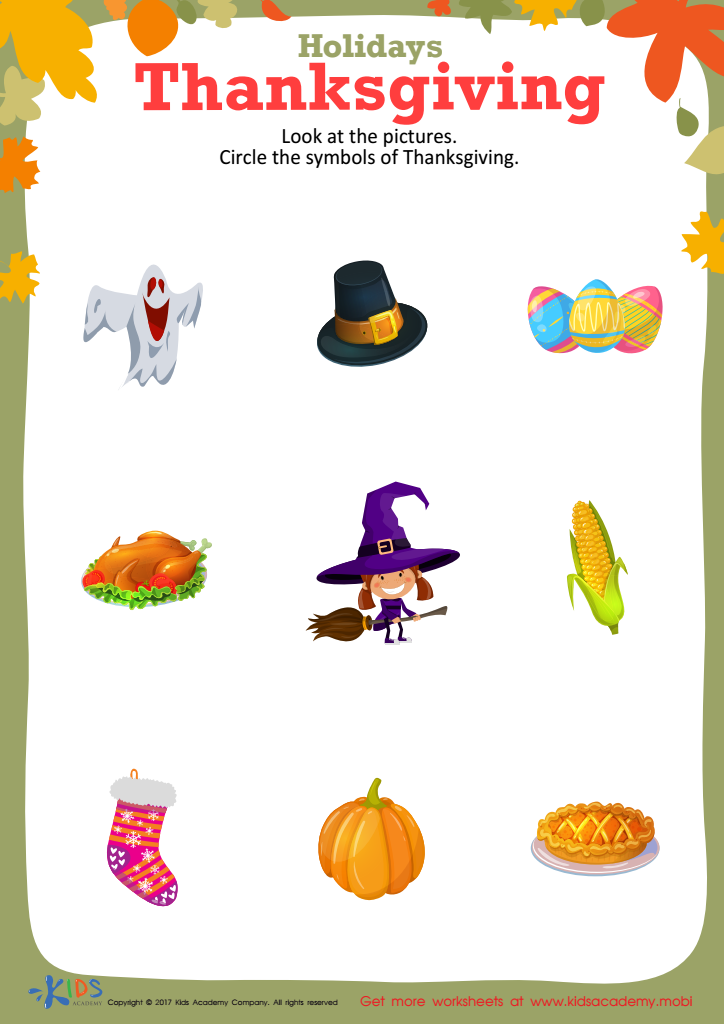

Thanksgiving Holiday Printable
Thanksgiving activities for children aged 3-7 are crucial for several reasons. First, these activities provide a fantastic opportunity to engage young minds in hands-on learning experiences. At this age, children are enthusiastic about exploring their environment and developing new skills. Thanksgiving crafts, stories, and games can stimulate creativity while teaching costs associated with cultural traditions.
Furthermore, Thanksgiving is an excellent time to instill values such as gratitude, sharing, and togetherness. Activities can revolve around recognizing what we are thankful for, promoting emotional awareness, and fostering interpersonal skills like cooperation and empathy. Simple exercises like making thank-you cards or sharing stories provide meaningful discussions and reinforce family bonds.
In terms of cognitive development, Thanksgiving-related activities often incorporate age-appropriate vocabulary and concepts, helping to enhance language skills and comprehension. These experiences also provide opportunities for social interaction, teaching children about community and social norms.
Finally, Thanksgiving activities can be fun, making learning enjoyable and memorable. When parents and teachers actively participate, it creates lasting experiences that children will cherish. Celebrating Thanksgiving in this way nurtures holistic development, promoting not just educational outcomes but overall emotional and social well-being in young learners.

 Assign to My Students
Assign to My Students



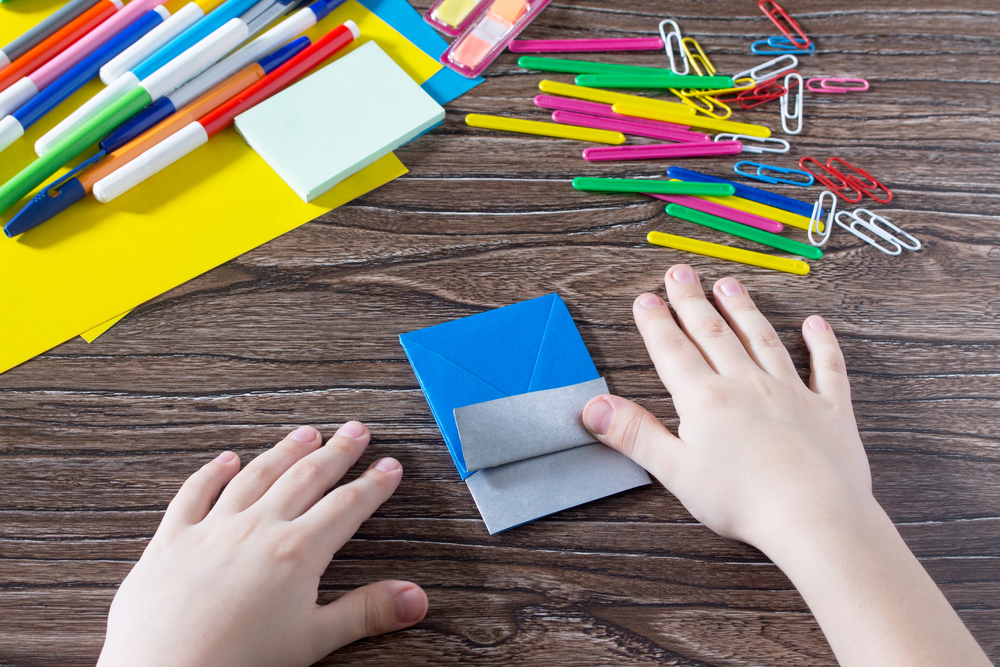


.jpg)
